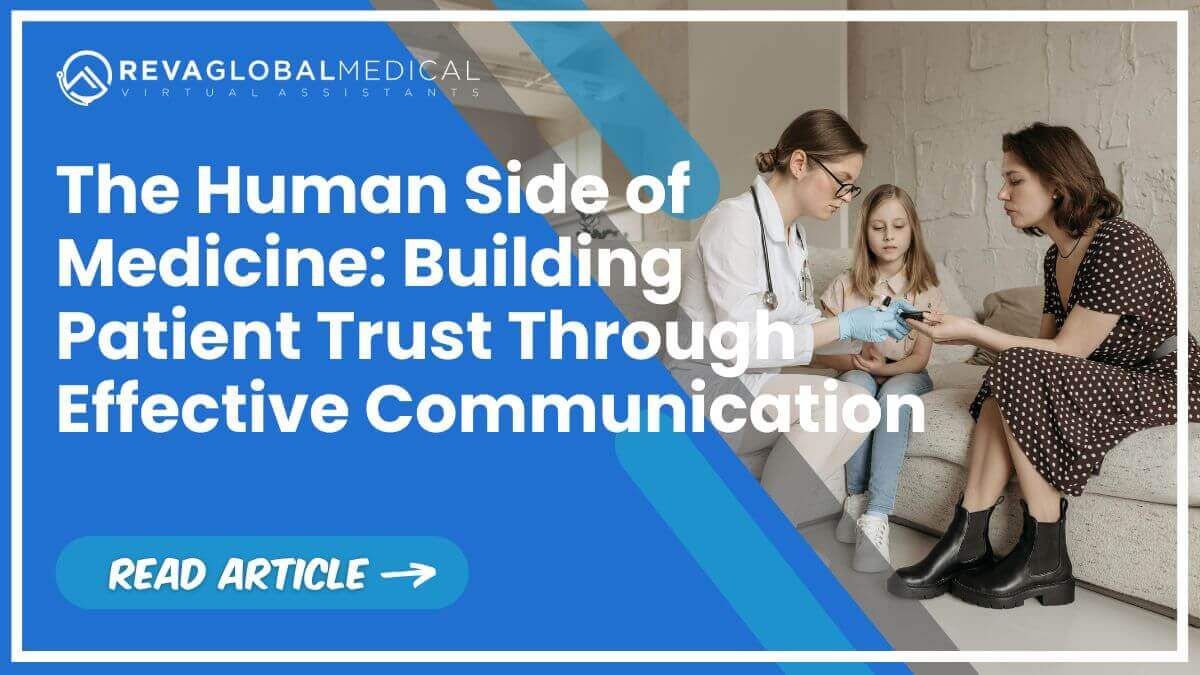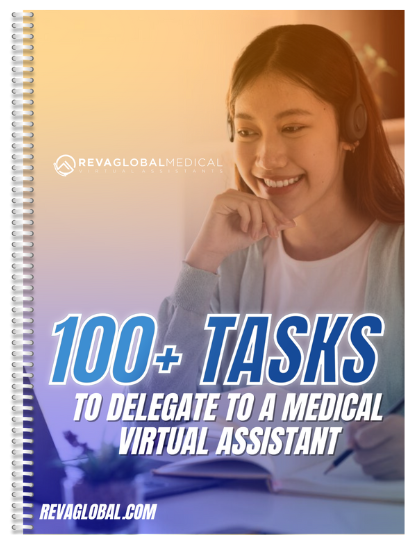The Human Side of Medicine: Building Patient Trust Through Effective Communication

In modern medicine, patient trust is the cornerstone of the physician-patient relationship. However, a growing challenge threatens this vital connection—patients are becoming increasingly anxious about their healthcare experiences, and physicians are struggling to maintain the level of communication necessary to build confidence and security.
According to a study by PatientPoint, 81% of patients trust their doctors more than any other source of health information. Yet, paradoxically, 54% of patients report experiencing anxiety before medical visits, primarily due to fears about diagnoses, misunderstandings, or feeling unheard. This disconnect reveals an urgent need for improved communication strategies to rebuild and strengthen patient trust between physicians and their patients.
Understanding Patient Anxiety: More Than Just White Coat Syndrome
The anxiety patients feel before visiting a doctor goes beyond the traditional “white coat syndrome.” Many factors contribute to this growing apprehension, including:
- Fear of bad news – Patients often delay or avoid visits due to anxiety about potential diagnoses.
- Unclear medical explanations – Medical jargon can be overwhelming, leading to misunderstandings.
- Feeling rushed – Short appointment times may leave patients feeling unheard.
- Past negative experiences – Previous misdiagnoses or dismissive encounters can create skepticism.
- Digital misinformation – The internet provides an abundance of conflicting health information, making it difficult for patients to trust professional advice.
These concerns make it essential for healthcare professionals to adopt a patient-centered communication approach—one that reassures, informs, and engages patients in their own healthcare journey while fostering patient trust.
How Physicians Can Strengthen Patient Trust Through Communication
Building patient trust isn’t just about knowledge and expertise; it’s about how that expertise is communicated. Here are several strategies physicians can use to create a more transparent and reassuring healthcare experience:
1. Active Listening: More Than Just Hearing
Patients need to feel heard and valued. Instead of rushing through consultations, physicians can adopt active listening techniques:
- Maintain eye contact and use open body language.
- Ask open-ended questions to encourage patients to express their concerns.
- Paraphrase and repeat key points to ensure understanding.
A simple phrase like, “I hear you. Let’s go through this together so we can find the best solution,” can go a long way in reassuring a patient and strengthening patient trust.
2. Using Clear and Simple Language
Medical terminology can be intimidating. Instead of saying, “You have hypertension,” say, “Your blood pressure is higher than we’d like, so we need to find a way to lower it to keep you healthy.”
Breaking down complex conditions into understandable terms and using visual aids can empower patients with knowledge, reducing fear and uncertainty while enhancing patient trust.
3. Encouraging Shared Decision-Making
Patients who feel involved in their treatment plans are more likely to trust and follow through with medical advice. Physicians should:
- Explain available treatment options with their pros and cons.
- Ask for the patient’s input and concerns.
- Validate their feelings and preferences.
For example, saying, “There are a few ways we can approach this. Let’s discuss what works best for you,” fosters collaboration and enhances patient trust.
4. Providing Emotional Support and Reassurance
Many patients fear being judged or dismissed. A warm and empathetic approach can make a world of difference. Simple affirmations like, “I understand this is a lot to take in. You’re not alone in this—we’re here to help,” can ease patient anxiety and build patient trust.
5. Follow-Up and Availability
Patients appreciate when doctors follow up after an appointment, whether through a call, email, or patient portal. A simple, “Just checking in to see how you’re feeling after our last visit,” can reinforce patient trust and show genuine care.
Leveraging Medical Virtual Assistants (VAs) to Enhance Patient Trust and Communication
Despite their best efforts, many physicians struggle to maintain high-quality communication due to the overwhelming administrative burden of modern healthcare. This is where medical virtual assistants (VAs) from REVA Global Medical can be a game-changer.
How Medical VAs Can Improve Patient Trust and Communication
Enhanced Follow-Ups: Medical VAs can handle post-appointment follow-ups, ensuring patients feel supported and their concerns are addressed, strengthening patient trust.
Appointment Scheduling and Reminders: By managing patient appointments and sending reminders, VAs help reduce missed visits and improve continuity of care.
Patient Education: VAs can provide clear, easy-to-understand medical information, reinforcing what was discussed during consultations and building patient trust.
Streamlined Communication: With medical VAs handling non-clinical communication, physicians have more time to engage meaningfully with their patients.
Patient Satisfaction Surveys: Collecting feedback through VAs helps physicians understand patient concerns and improve their communication approach.
Streamline your practice with a Medical Virtual Assistant
By utilizing a Medical Virtual Assistant, you can free up your time and ensure that your medical practice operates efficiently
Trust in healthcare is built through clear, compassionate, and continuous communication. While physicians work tirelessly to care for their patients, the demands of modern medicine can make it difficult to provide the level of communication that patients need.
By integrating medical virtual assistants from REVA Global Medical, healthcare providers can bridge the gap, ensuring patients feel heard, valued, and cared for beyond the consultation room. Strengthening patient trust is not just about medical expertise—it’s about how that expertise is communicated and supported by efficient, patient-focused processes.
In a world where medical anxiety is on the rise, let’s commit to a future where patients walk into a doctor’s office feeling informed, reassured, and confident in the care they receive.
If you’re ready to scale your practice, save time, and improve efficiency, schedule a schedule a strategy session today.
Let us match you with the perfect healthcare virtual assistant and set your practice up for success!
Schedule Your Strategy Session!
Grow Your Brand With Trained Virtual Assistants
Get the help you need to take your brand and business to the next level.
Not Sure What Tasks To
Start Outsourcing?
We’ve got you covered.
Download our free guide to help you get started.


